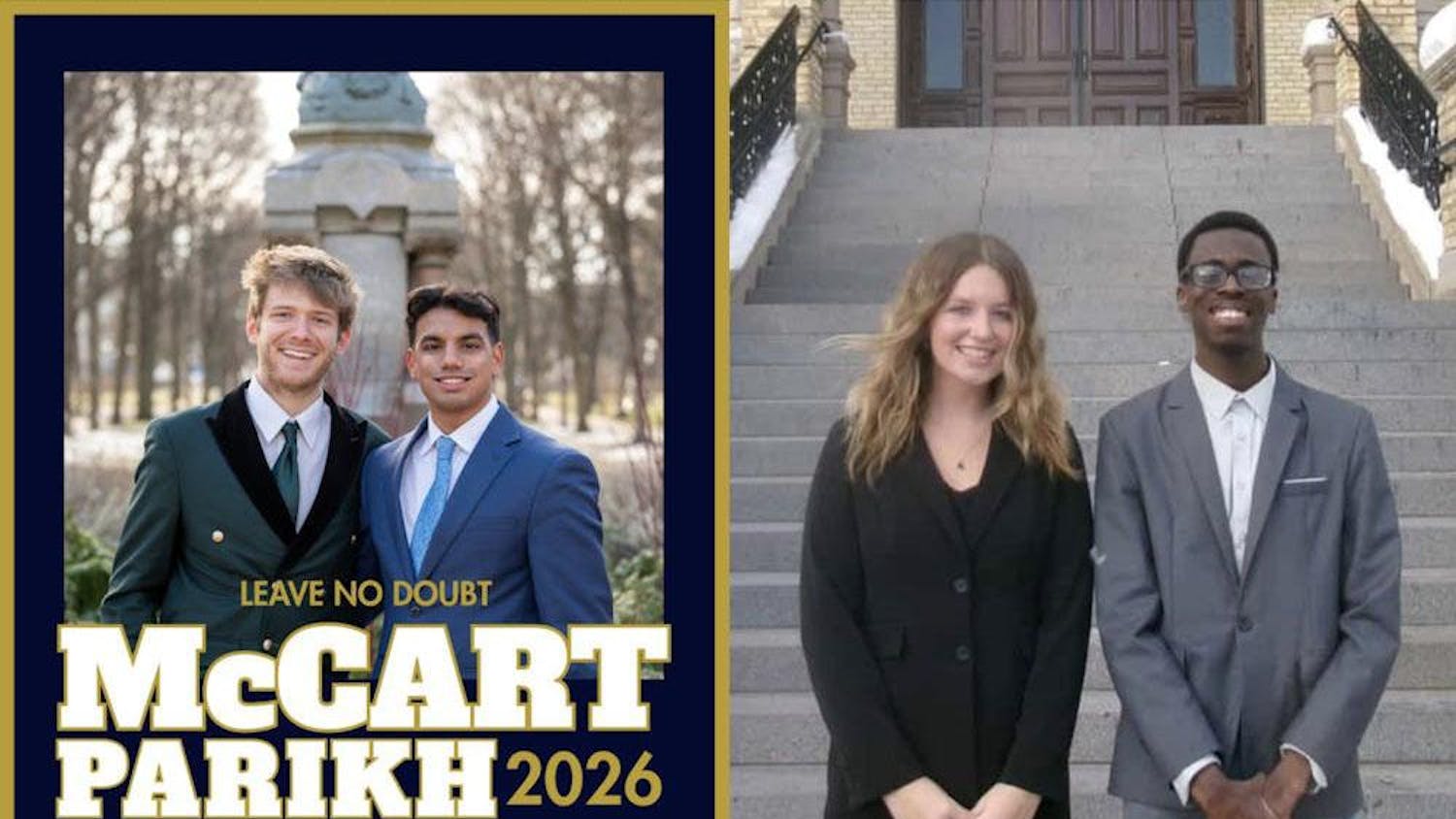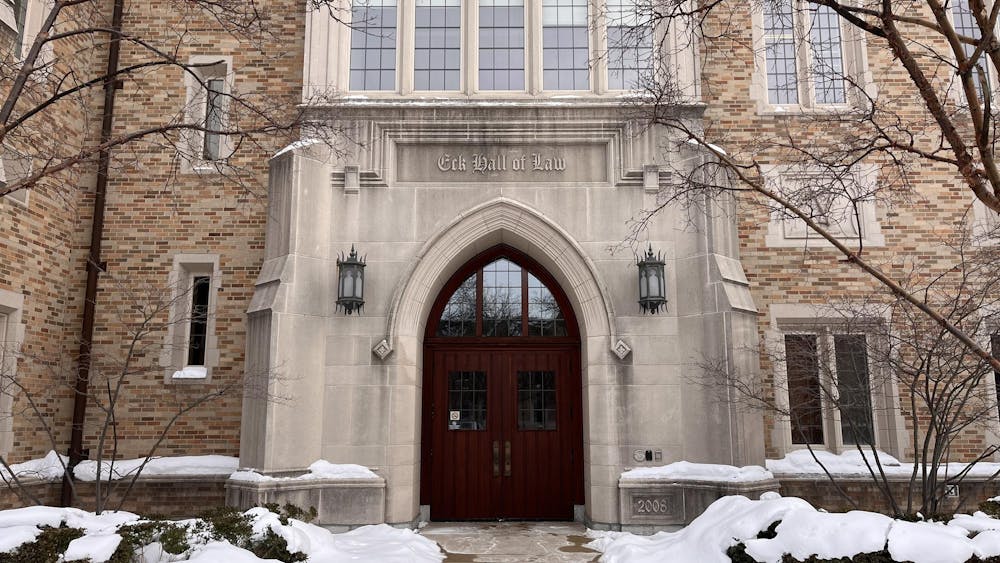Washington Hall rang with laughter Monday evening from first-year Moreau First Year Experience students who had gathered to watch and participate in Sex Signals, an annual improvisational comedy show sponsored by the Gender Relations Center (GRC) that aims to educate and inspire student discussion about sex, relationships and consent.
The show was introduced to Notre Dame five years ago, but it is the first year the GRC is partnering with the Moreau program to allow students to receive ten extra credit points for their attendance, GRC director Christine Gebhardt said in an email.

“This year we revised the design of the first two weeks to be more conversation based and included the opportunity for Sex Signals, which uses humor, case studies and audience participation,” Gebhardt said. “It is our hope that the extra credit will give students an incentive to make the event a priority, as it is our institution's way of acknowledging how the conversation should not merely happen in class but throughout our campus.”
Vincent Banks and Jessamyn Fitzpatrick of Catharsis Productions — the Chicago-based performance group running Sex Signals, launched into a discussion about sexual relationships in a campus setting —
“How many of you had sex ed classes in high school?” Banks asked the audience.
A majority of students raised their hands.
“What did you learn in those classes?” he asked.
Students shouted out their answers.
“Did anyone learn how to have sex. — other than from porn” Banks said half-jokingly in response.
Throughout their hour and 15 minute performance, Banks and Fitzpatrick interacted with their audience as they acted out three hypothetical scenarios representative of real-life situations — flirting at a party, sexual harassment at a gym and dealing with people who make excuses for sexual assault in the name of friendship. The acts were used as teaching tools to break stereotypes, explain gender spectrums, clearly define consent, fight against victim-blaming and encourage bystander intervention.
Towards the end of the program, the performers called for students to “raise the bar” on campus by making a culture of consent so normal that it would force those who do not ask for it to stand out.
First year Danielle Slevin attended the performance with her friend and — fellow first year — Helton Rodriguez.
“I felt that it was really empowering and really moving, especially to be in a room full of kids who might have experiences similar to mine or who feel the way I do. … I have friends who have been affected, whether it’s being uncomfortable at parties, or things that have escalated to more serious situations that were usually induced by alcohol,” Slevin said. “It’s a serious thing that is present on this campus, and it’s something that should be spoken about.”
Rodriguez, who participated during the show, said he reflected on how the issues presented in the show were present in his life.
“Whenever I have girls over at my dorm to study, I always have to ask if they’re comfortable walking home alone,” he said. “And it’s just kind of a sucky part of life.”
He feels that Notre Dame’s strong Catholic identity can reinforce values preventing sexual assault, but also can make the topic a taboo to talk about.
“I think, regardless, it’s problem on campus,” he said. “You can argue whether or not it’s harder or easier to talk about, but you have to talk about it.”
Editor‘s note: A previous version of this article used the incorrect gender pronouns when referring to a student on first mention. The Observer regrets this error.








